In the United Arab Emirates, having good Language Skills for Work is key to getting ahead, especially in hospitality. Braco Group, a top agency in the Middle East, says language skills are vital. Knowing the right language for your job can really help you stand out.
In the Middle East, speaking well is not just helpful—it’s necessary for moving up in your career. With more jobs available, having the right language skills can be the difference. This article will show why Language Skills for Work matter and how to get better at them.
Key Takeaways
- Language Skills for Work are crucial for success in the Middle East job market
- Mastering job-specific language skills can give you a competitive edge
- Effective communication is key to career advancement in the hospitality industry
- Language Skills for Work are essential for navigating the job market in the United Arab Emirates
- Developing Language Skills for Work can improve your career prospects
- Braco Group emphasizes the importance of language skills for work success
Understanding the Middle Eastern Linguistic Landscape
When you work in the Middle East, knowing the local languages is key. Braco Group says it’s important to understand the many languages and dialects. This helps a lot in workplace communication and professional language proficiency.
You should know the main business languages like Arabic, English, and Persian. Also, be aware of the local variations and dialects.
In the Middle East, language is very important for workplace communication. To do well, you need to be good at the main languages. Here are some important points to remember:
- Arabic is the official language in most Middle Eastern countries
- English is widely used in business and international communication
- Persian is spoken in Iran and parts of Iraq and Afghanistan
Knowing the language order in work is also crucial. In the Middle East, speaking well can help your career and business ties. By improving your language skills, you’ll handle business talks better and make strong connections with others.
Language Skills for Work: A Career Game-Changer
Investing in language skills training can change your career, especially in the Middle East. With the right language skills, you can find better jobs, talk better with colleagues and clients, and move up in your career. Braco Group says that language skills training is key for career growth.
Some benefits of language training for employment include:
- Improved communication with colleagues and clients
- Enhanced job prospects
- Increased chances of career advancement
- Better understanding of cultural nuances and customs
To start language skills training, follow these steps:
- Identify your language learning goals and objectives
- Choose a reputable language training program
- Practice consistently and immerse yourself in the language
By investing in language skills training, you can boost your career and stay ahead in the job market. Remember, language skills are a valuable asset that can lead to new opportunities and experiences.
With the right language skills and training, you can overcome language barriers and achieve your career goals. Whether you’re looking to advance in your current role or move to a new industry, language skills training can help you get there.
The Impact of Language Proficiency on Hospitality Careers
When you’re looking into a career in hospitality, knowing multiple languages is key. Braco Group highlights how important it is to speak well in this field. In the UAE, speaking different languages helps you serve guests from all over.
Learning new languages can boost your career in hospitality. Here’s how:
- Guest communication requirements: Talking to guests in their own language makes their stay better and happier.
- Internal team collaboration: Good language skills help your team work together smoothly, getting things done fast and right.
- Career advancement opportunities: Knowing several languages can lead to more job chances, as you can work with people from other countries.
Getting good at speaking different languages helps you serve better, work better with your team, and move up in your career. Always remember, good communication is the heart of success in hospitality.

Essential Arabic Business Terms and Phrases
When you work in the Middle East, knowing Language Skills for Work is key. Learning job-specific language skills helps you talk better with your team, clients, and customers. Braco Group says it’s important to learn key Arabic business terms and phrases to get better at talking.
Some important Arabic business terms and phrases are:
- Marhaba (hello)
- Shukraan (thank you)
- As-salamu alaykum (peace be upon you)
Using these phrases can help you make strong connections with people who speak Arabic.
Adding these phrases to your daily talks shows you’re serious about Language Skills for Work. It also makes your communication better. Remember, getting better at job-specific language skills takes time and effort.
Building Cross-Cultural Communication Skills
In the Middle East, cultural differences greatly affect business talks. It’s key to learn how to communicate across cultures. Braco Group stresses the need for good workplace communication and professional language skills.
To improve, try these tips:
- Pay attention to non-verbal signs like body language and facial expressions. They mean different things in different cultures.
- Work on your speaking skills. This includes listening well and speaking clearly.
- Learn about the local customs, traditions, and values. This helps you be more culturally sensitive.
By focusing on these, you can get better at communicating across cultures. Remember, being good at professional language is crucial for success in any business.
| Communication Strategy | Description |
|---|---|
| Verbal Communication | Clear, concise messaging and active listening |
| Non-Verbal Communication | Awareness of body language and facial expressions |
| Cultural Sensitivity | Understanding of customs, traditions, and values |
Using these strategies daily will make you a better communicator in the Middle East. You’ll use your workplace communication and professional language skills to achieve success.
Professional Language Training Resources
Investing in language training is key for career growth. Braco Group suggests using professional resources to boost your language skills. This can help you communicate better, build strong relationships, and open more job opportunities.
Some top language training resources include:
- Language courses, such as Arabic, English, or French classes
- Online tutorials and language learning platforms
- Language exchange programs, which allow you to practice your language skills with native speakers
These tools can help you master the language needed for success in the Middle East. By investing in language training, you can move your career forward and reach your goals. Language training is vital for career growth and can greatly impact your professional life.
Language skills are highly valued in the job market. They can lead to new opportunities. By using professional language training resources, you can improve your career and achieve success in your field.
Language is the key to unlocking your full potential in the workplace. With the right language training, you can communicate effectively, build strong relationships, and achieve your career goals.
| Language Training Resource | Benefits |
|---|---|
| Language Courses | Improved communication skills, increased job prospects |
| Online Tutorials | Convenient, flexible, and cost-effective |
| Language Exchange Programs | Opportunity to practice with native speakers, build confidence |
Measuring and Certifying Your Language Proficiency
As you work on your language skills, it’s key to measure and certify your level. This shows your ability to communicate well to employers and clients. Braco Group suggests this step, which can boost your career in the United Arab Emirates.
Being proficient in language is vital for success at work. Getting certified can make you stand out. You can get recognized certifications like TOEFL or IELTS, which many employers and schools accept.
Recognized Language Certifications
- TOEFL (Test of English as a Foreign Language)
- IELTS (International English Language Testing System)
- CEFR (Common European Framework of Reference for Languages)
Industry-Specific Language Assessments
There are also assessments for specific industries, like hospitality or business. These tests are made for your field and show your skills more accurately.
By getting certified, you highlight your communication skills and language ability. This makes you more appealing to employers in the United Arab Emirates.
| Certification | Level | Industry |
|---|---|---|
| TOEFL | Beginner to Advanced | General |
| IELTS | Beginner to Advanced | General |
| CEFR | A1 to C2 | General |
Common Language Challenges and Solutions
As you work in the Middle East, you might face language hurdles. These can affect your Language Skills for Work. It’s key to learn job-specific language skills to beat these obstacles and thrive in your job.
Some common language challenges include:
- Language barriers: Trouble talking with colleagues, clients, or customers who speak other languages.
- Cultural differences: Misunderstandings due to cultural nuances and different communication styles.
- Communication breakdowns: Not being able to share messages clearly, causing errors or misunderstandings.
To tackle these issues, it’s vital to develop good communication tactics and Language Skills for Work. You can do this by:
Getting language training, practicing with native speakers, and learning about cultural differences. This way, you can boost your job-specific language skills and better your communication abilities.
Improving Language Skills for Work is a journey that needs hard work, commitment, and practice. With the right methods and tools, you can conquer language hurdles and reach success in your career.
| Language Challenge | Solution |
|---|---|
| Language barriers | Language training programs |
| Cultural differences | Cultural awareness training |
| Communication breakdowns | Effective communication strategies |
Technology Tools for Language Learning
As you work on your language skills, using technology can really help. Today, there are many tools to aid your learning, from apps to online platforms. These tools can boost your workplace communication and help you become more professional in your language skills.
Mobile Apps for Professional Language Development
Apps like Duolingo and Babbel offer fun lessons and exercises. You can use them anywhere, making it easy to practice during your commute or breaks.

Online Learning Platforms
Platforms like Coursera and Udemy have lots of language courses. They include video lessons, quizzes, and discussions. This helps you get better at workplace communication.
Language Practice Communities
Joining language practice groups can connect you with native speakers and other learners. These groups offer a place to practice and improve your skills, helping you become more professional.
Creating Your Language Development Plan
To boost your career development and job market success, making a language plan is key. This plan will show you what languages you need and the best language training for employment. Braco Group advises professionals to do this, as it greatly affects their career.
When making your plan, think about these steps:
- Set clear language goals, like getting better at Arabic or learning a new one
- Find out what languages you need for your job or field
- Pick language training options, like online courses or language exchange programs
- Keep track of your progress and change your plan if needed
A good language plan keeps you focused and motivated. It helps you reach your language goals and grow your career. By putting effort into language training for employment, you can better communicate, find more job chances, and move up in your career development.
Creating a language plan is a big step towards your career goals. By following these steps and sticking to your plan, you can get better at languages, feel more confident, and boost your career in the UAE job market.
Conclusion: Taking the Next Step in Your Career Journey
Starting your career in the Middle East? Learning the region’s languages is a big plus. It can lead to new chances. By improving your effective communication skills and language proficiency in the workplace, you’ll stand out. This can boost your career and make you more confident.
Braco Group, a top hospitality recruitment agency in the Middle East, urges you to move forward. Whether you want a new job or to grow in your current role, speaking more languages helps. Use the tips from this article to make a plan for learning languages. This will help you reach your career goals.
Learning languages is a journey, but it’s worth it. Don’t be afraid to take on the challenge. Celebrate every step you take. Your ability to speak many languages will help you succeed in the Middle East’s fast-changing business world. Let your language skills be the key to your career success.
FAQ
What are the common languages used in Middle Eastern business?
The Middle East is home to many languages, with Arabic being the main one. But English is also key in business, especially in places like the UAE. Other languages like Persian, Turkish, and French are also used in certain areas or fields.
How can language skills help advance my career in the Middle East?
Knowing languages can really boost your career in the Middle East. It opens up more job opportunities and helps you communicate better with others. In the hospitality industry, speaking the language is crucial for working well with guests and colleagues.
What are some essential Arabic business terms and phrases I should learn?
Learning key Arabic business terms and phrases is important. It helps you talk better with people at work, in meetings, and during negotiations. Start with greetings, introductions, and common professional expressions.
How can I develop cross-cultural communication skills for the Middle Eastern market?
To succeed in the Middle East, you need to understand different cultures. Work on your verbal skills, learn about non-verbal signs, and be sensitive to cultural differences. This way, you can avoid misunderstandings and connect better with people.
What are some recognized language certifications I can pursue?
There are well-known language tests like TOEFL, IELTS, and CEFR. These show your language skills. Also, look for tests specific to your field of work.
What are some common language challenges I may face in the Middle East, and how can I overcome them?
You might face language barriers, cultural differences, and communication issues. To deal with these, use simple language, listen well, and be aware of cultural differences. Practice regularly and use language learning tools to improve.
What technology tools can I use to enhance my language learning?
There are many tech tools for learning languages, like apps and online platforms. They offer lessons, practice, and chances to talk with native speakers. These tools make learning easier and more fun.
How can I create a comprehensive language development plan for my career?
First, set clear language goals and figure out what you need to learn. Then, pick the right resources for your training. Keep track of your progress and adjust your plan as needed. Investing in your language skills can greatly help your career in the Middle East.



